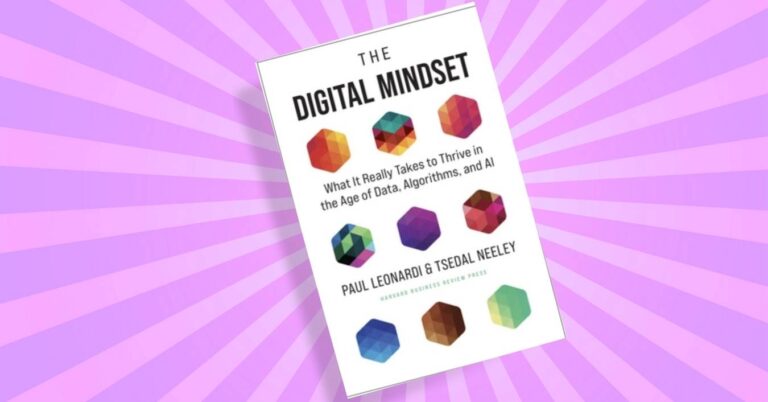
“The Age of Surveillance Capitalism” by Shoshana Zuboff examines the rise of a new economic order that claims human experience as free raw material for hidden commercial practices of extraction, prediction, and sales.
Zuboff explores the implications of surveillance capitalism on privacy, democracy, and individual autonomy.
Key Takeaways, Insights, and Views
- Surveillance Capitalism Defined
- Surveillance capitalism refers to the commodification of personal data through surveillance.
- This economic model is driven by the extraction and analysis of personal data to predict and influence behavior.
- Behavioral Surplus
- Companies collect vast amounts of data beyond what is necessary for their services.
- This excess data, or behavioral surplus, is used to predict and modify future behavior.
- Instrumentarian Power
- Surveillance capitalism wields a new form of power: instrumentarian power.
- This power aims to shape human behavior at scale through digital means.
- Impact on Privacy
- The extensive data collection erodes personal privacy.
- Individuals often unwittingly surrender their privacy for convenience.
- Economic and Social Implications
- Surveillance capitalism has profound impacts on democracy and the economy.
- It shifts power to corporations that control the data, influencing public and private life.
- Resistance and Regulation
- Zuboff calls for resistance to surveillance capitalism through awareness and regulation.
- Advocates for laws to protect personal data and curb corporate overreach.
- Future Directions
- The book explores potential futures where surveillance capitalism is unchecked.
- It also envisions paths towards a more humane digital future.
Core Concepts
| Concept | Explanation | Importance |
|---|---|---|
| Surveillance Capitalism | Economic model based on commodifying personal data through surveillance. | Understanding the fundamental shift in economic practices and its implications. |
| Behavioral Surplus | Excess data collected beyond operational needs, used for prediction. | Key to how companies monetize personal data and influence behavior. |
| Instrumentarian Power | Power to shape behavior through digital means and data analytics. | Highlights the new form of power and control in the digital age. |
| Privacy Erosion | The diminishing control over personal information. | Central to the debate on personal freedom and digital rights. |
| Regulation | Laws and policies aimed at protecting personal data and limiting surveillance. | Essential for creating a framework to protect individual rights and curb corporate overreach. |
Deeper Explanations of Important Topics
Instrumentarian Power
- Explanation: Instrumentarian power is a form of power exercised through the collection, analysis, and application of data to shape, predict, and modify human behavior at scale. Unlike traditional forms of power, which are often coercive or authoritative, instrumentarian power is subtle, operating through the digital environment and algorithms.
- Importance: This concept is crucial for understanding the influence that data-driven technologies have over individuals and societies. It highlights the shift in how power is exercised in the digital age, raising concerns about autonomy, freedom, and democracy.
Behavioral Surplus
- Explanation: Behavioral surplus refers to the data collected by companies that goes beyond what is necessary to provide services. This surplus is used to predict future behavior, allowing companies to sell these predictions to advertisers and other third parties.
- Importance: Behavioral surplus is the cornerstone of surveillance capitalism. It explains how companies monetize personal data and the implications for privacy and consumer behavior. Recognizing this helps in understanding the economic incentives driving data collection practices.
Actionable Insights
- Enhance Personal Data Awareness
- Be mindful of the data you share online and with digital services.
- Use privacy settings and tools to limit data collection where possible.
- Advocate for Data Protection Policies
- Support and promote laws that protect personal data and limit surveillance.
- Engage in public discussions and awareness campaigns about digital rights.
- Practice Digital Minimalism
- Reduce dependence on digital services that collect excessive personal data.
- Opt for alternatives that prioritize user privacy and data security.
- Educate and Inform Others
- Share knowledge about surveillance capitalism and its impacts.
- Encourage others to be vigilant about their digital privacy and data rights.
- Support Ethical Companies
- Choose to use services from companies that have transparent data practices.
- Advocate for corporate responsibility in data management and user privacy.
Quotes from "The Age of Surveillance Capitalism"
- “Surveillance capitalism unilaterally claims human experience as free raw material for translation into behavioral data.”
- “Instrumentarian power knows and shapes human behavior at scale, producing compliance without awareness.”
- “Privacy is not private; it is the terrain on which corporations fight to extract data.”
- “The prospect of unchecked surveillance capitalism spells the end of autonomy and democracy.”
- “The challenge we face is to insist on the digital future as a place where people are sovereign and not data slaves.”
This summary of “The Age of Surveillance Capitalism” by Shoshana Zuboff, is part of our series of comprehensive summaries of the most important books in the field of AI. Our series aims to provide readers with key insights, actionable takeaways, and a deeper understanding of the transformative potential of AI.
To explore more summaries of influential AI books, visit this link.






